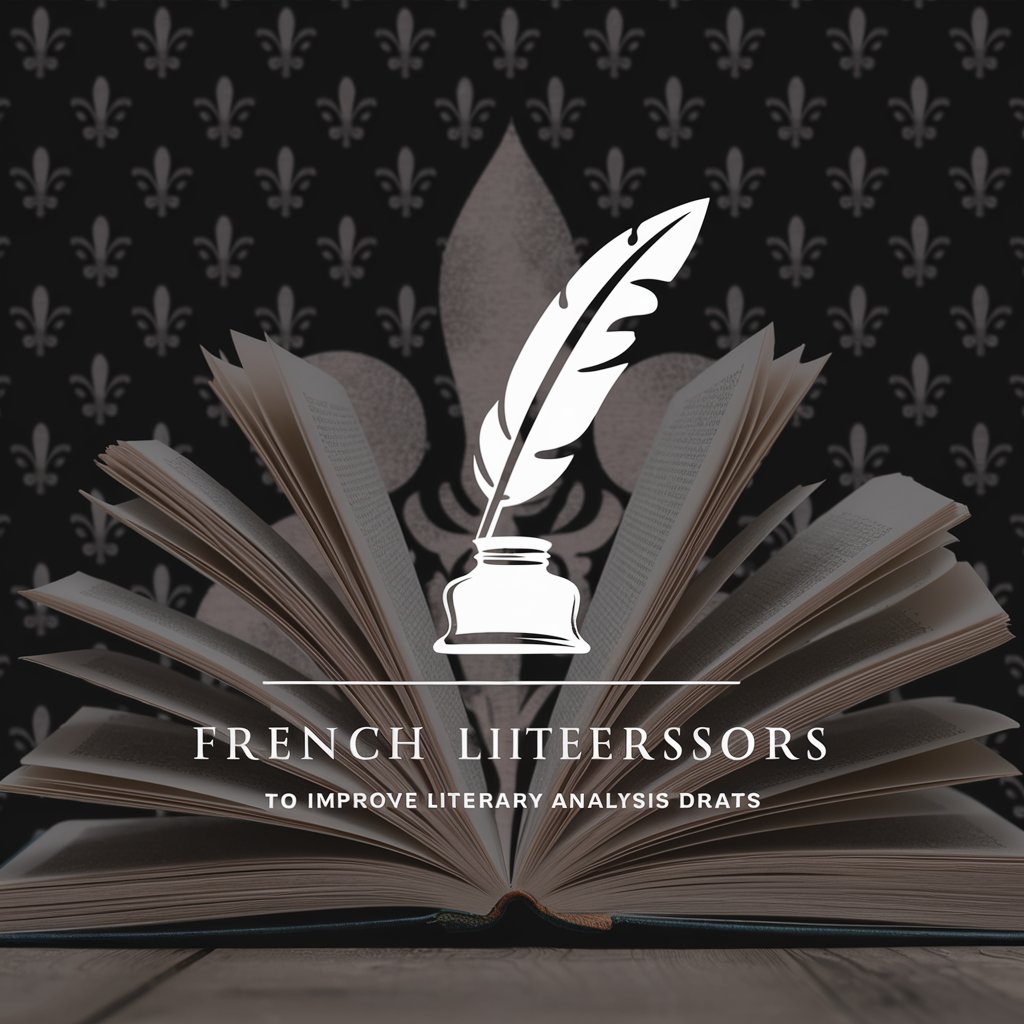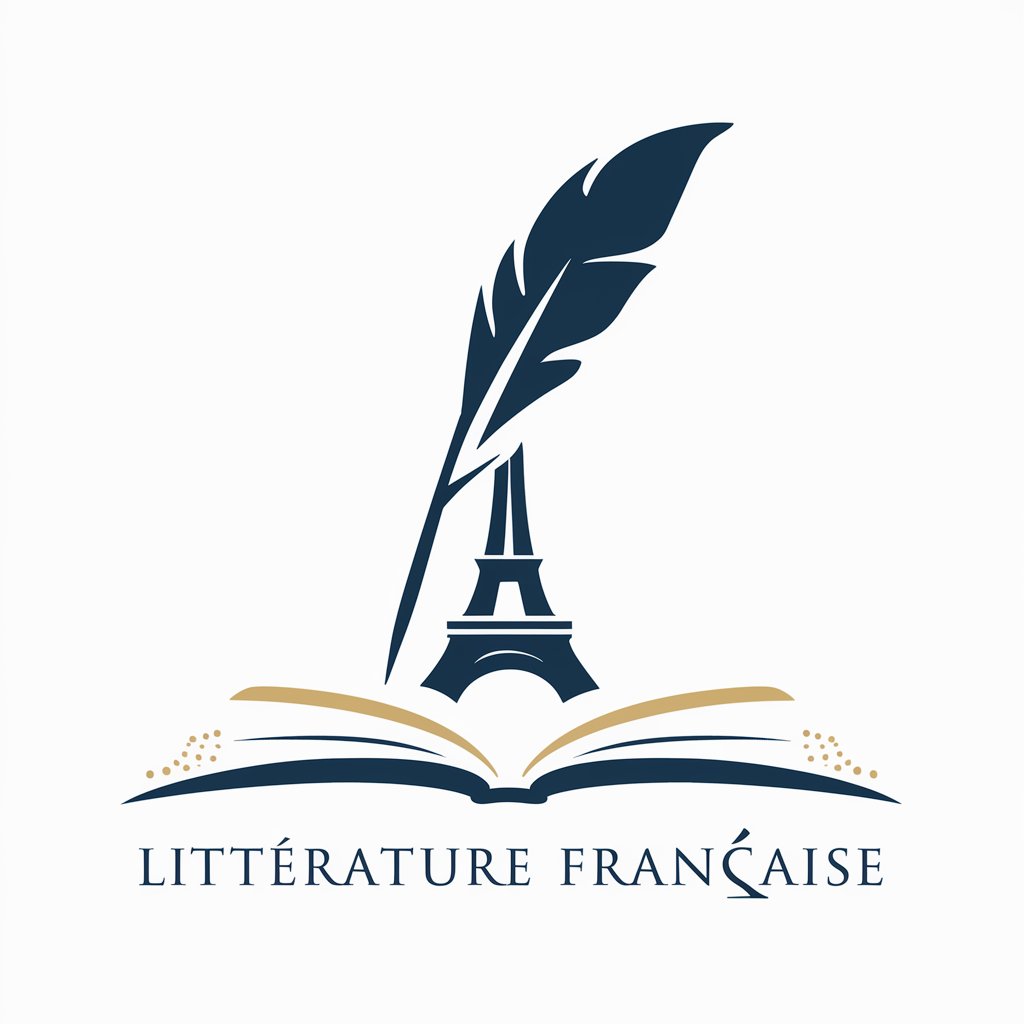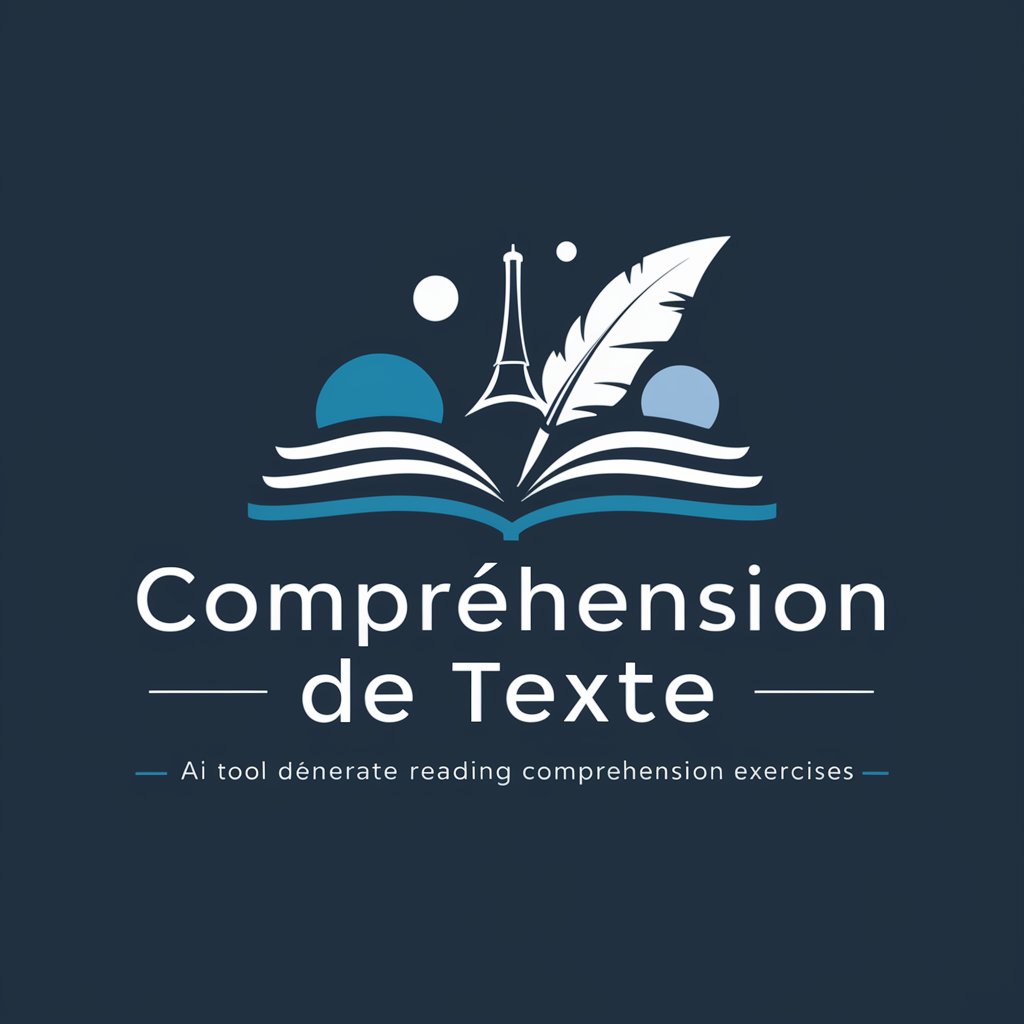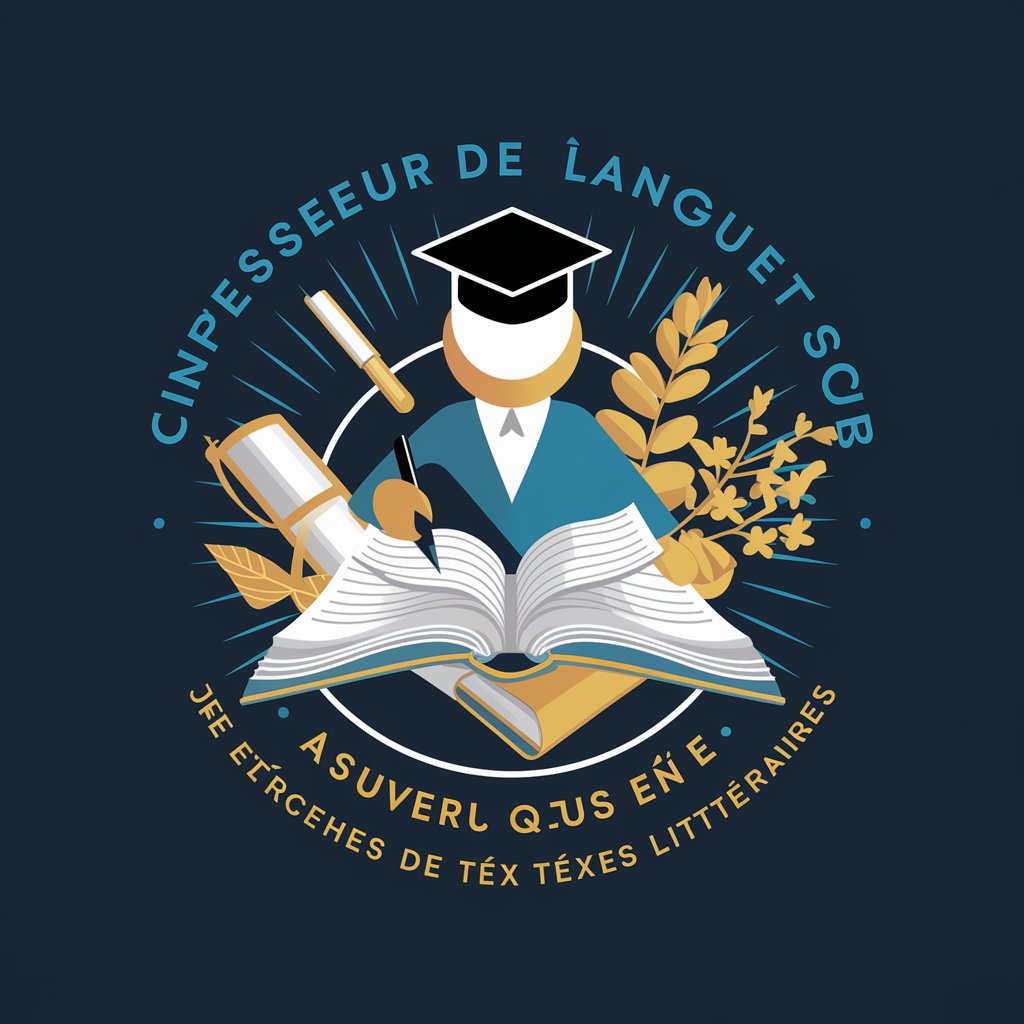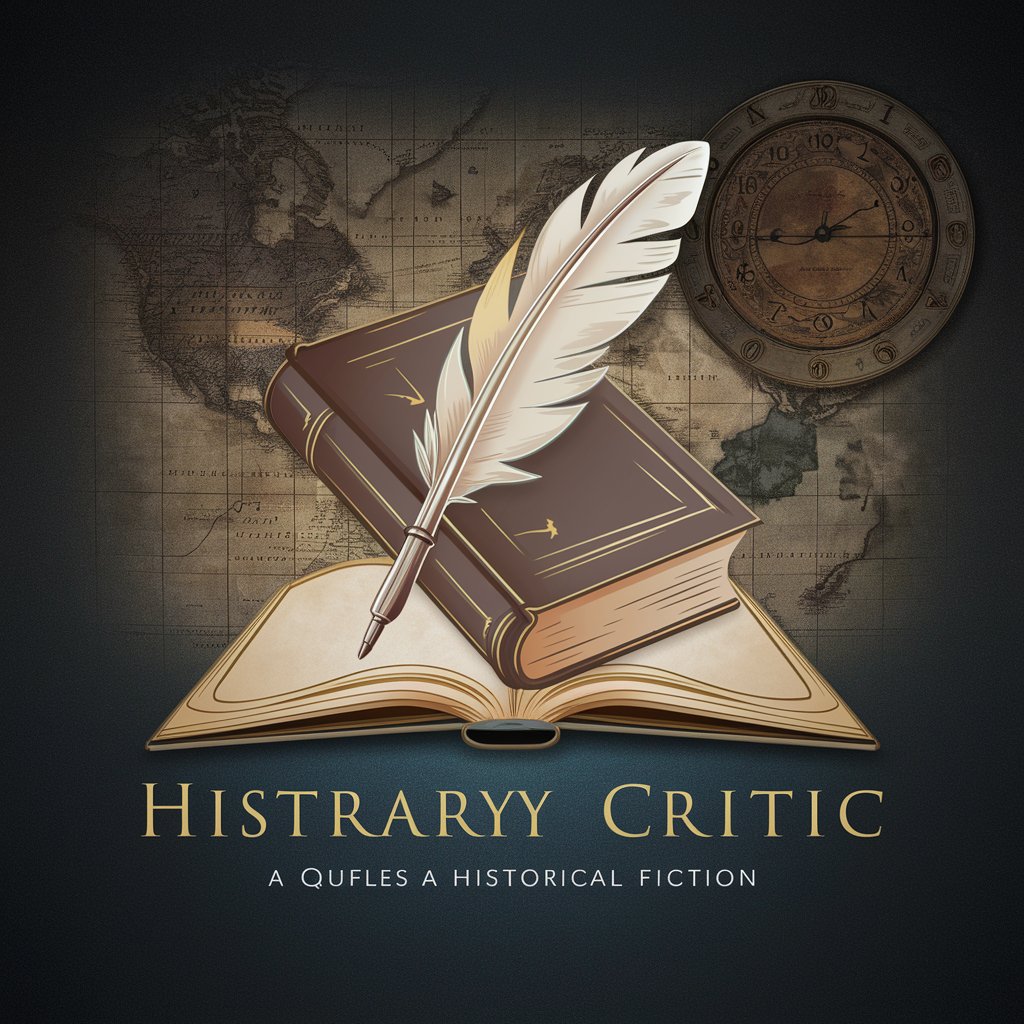
Littérature - Histoire et Analyse - In-Depth Literary Insights
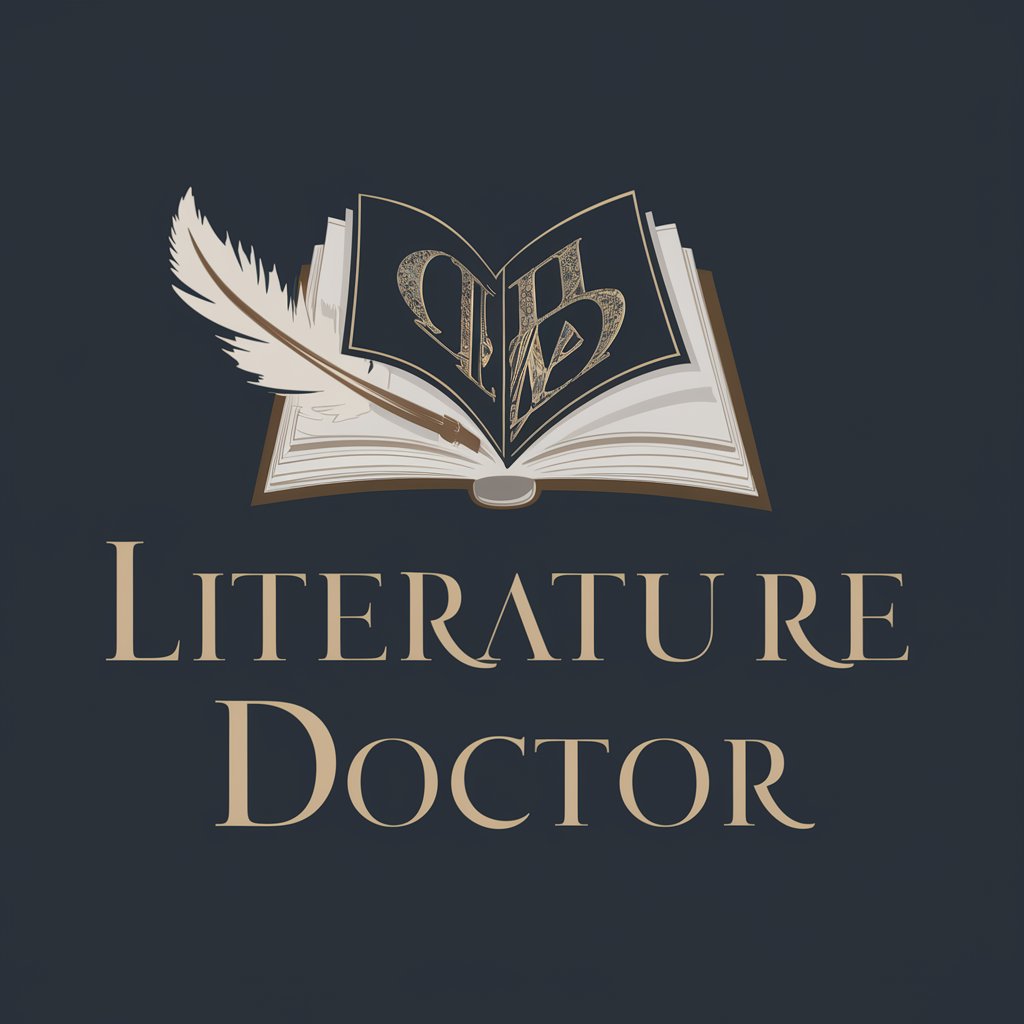
Welcome to 'Literature Doctor,' your erudite guide to classic and cult literature.
Empowering Literature Exploration with AI
Analyze the thematic significance of...
Discuss the narrative techniques employed in...
Examine the character development in...
Evaluate the historical context and its influence on...
Get Embed Code
Overview of Littérature - Histoire et Analyse
Littérature - Histoire et Analyse, also known as Literature Doctor, is an expert system designed to provide in-depth analysis and scholarly insight into classical and cult literature. Its core purpose is to serve as a knowledge resource for those seeking comprehensive understanding of literary subjects. This encompasses literary history, thematic and stylistic analyses, authorial contexts, and the impact of works on culture and society. For example, when exploring the existential themes in Albert Camus' 'The Stranger', Literature Doctor would delve into the historical context of existentialism, Camus' philosophy, and how these elements manifest in the narrative and character development, providing a nuanced interpretation for the reader. Powered by ChatGPT-4o。

Core Functions of Littérature - Histoire et Analyse
Thematic Analysis
Example
Examining the theme of alienation in 'The Catcher in the Rye' by J.D. Salinger.
Scenario
A student writing a thesis on post-war American literature might use this function to understand how Salinger's work reflects the zeitgeist of the era and the psychological impact of war on youth.
Historical Contextualization
Example
Exploring the influence of the French Revolution on the Romantic literature, particularly in works like 'Les Misérables' by Victor Hugo.
Scenario
A journalist might use this function to craft a feature article on how historical events shape literary movements and the enduring relevance of these themes in contemporary society.
Stylistic Analysis
Example
Analyzing the use of stream of consciousness in Virginia Woolf's 'Mrs. Dalloway'.
Scenario
A literary critic might employ this function to compare Woolf's narrative techniques with those of her contemporaries, shedding light on her unique contribution to the modernist movement.
Authorial Intent and Biography
Example
Investigating the impact of Fyodor Dostoevsky's personal experiences on his depiction of moral and psychological conflicts in 'Crime and Punishment'.
Scenario
A literature professor might use this function to enrich classroom discussions, helping students to connect the author's life with his work and understand the deeper layers of the text.
Target User Groups for Littérature - Histoire et Analyse
Students and Academics
This group includes university students, researchers, and professors who require in-depth literary analysis for academic purposes, such as writing theses, conducting research, or developing curriculum.
Literature Enthusiasts
Dedicated readers and book club members who seek a deeper understanding of literary works and enjoy engaging in rich, informed discussions about their readings.
Literary Professionals
This includes writers, editors, publishers, and literary critics who benefit from insights into literary trends, historical contexts, and stylistic elements to inform their work and critique.
Journalists and Content Creators
Media professionals focusing on cultural, educational, and literary content who require detailed analyses and historical insights to produce informed articles, essays, and multimedia content.

How to Use Littérature - Histoire et Analyse
1
Visit yeschat.ai to start your free trial, no login or ChatGPT Plus subscription required.
2
Select the 'Littérature - Histoire et Analyse' option from the available tools to access specific functionalities tailored for literary analysis and history.
3
Enter your question or topic related to classic and cult literature. Be specific to ensure more precise and comprehensive responses.
4
Review the generated analysis. For best results, you may refine your query based on the initial feedback or ask follow-up questions to dive deeper into the subject.
5
Use the tool's insights for your research, writing, or study. It can help in drafting essays, understanding literary themes, or exploring historical contexts.
Try other advanced and practical GPTs
Integron Benchmark Writer
Empower Your Strategy with AI-Driven Insights

SnarkGPT
Where AI meets Attitude

Calendar Butler
Master your schedule with AI precision.
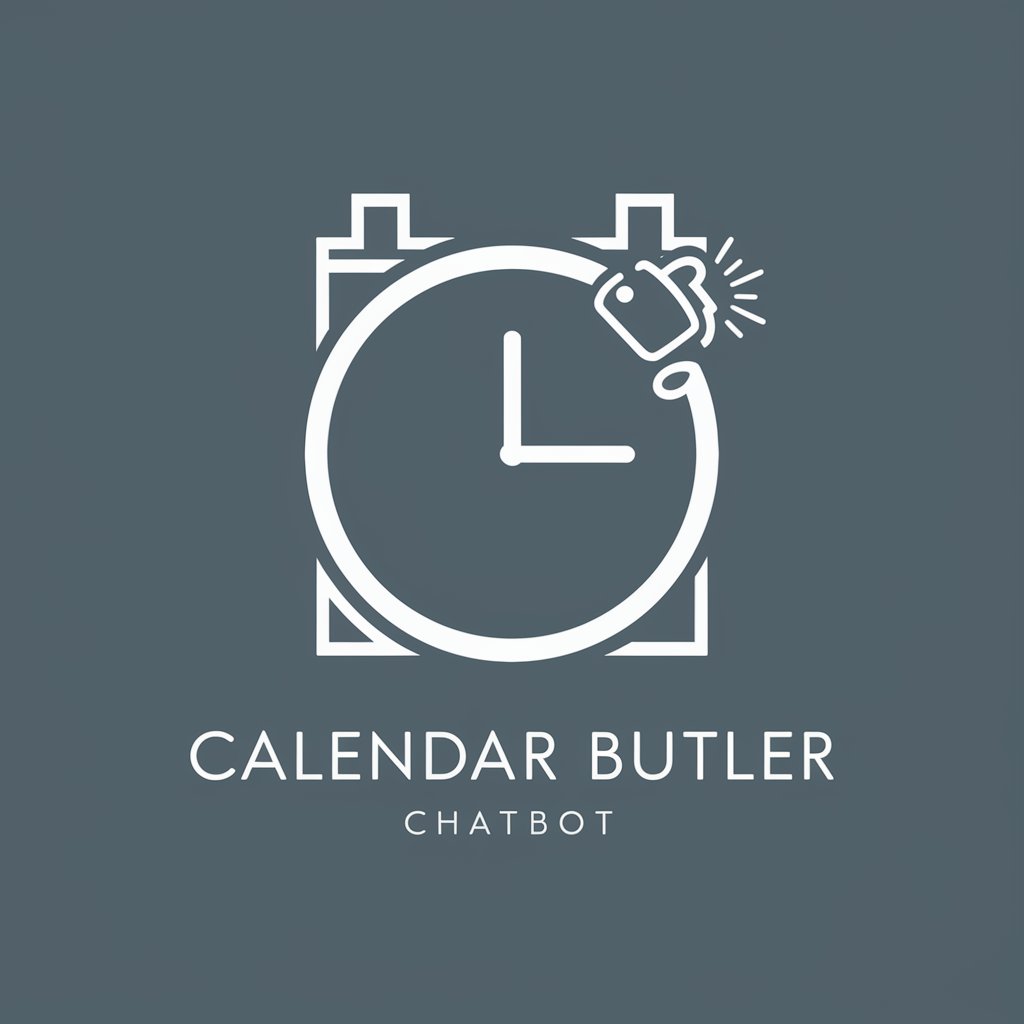
Water Softener Pro - Minnesota
Optimize Your Water Softening System
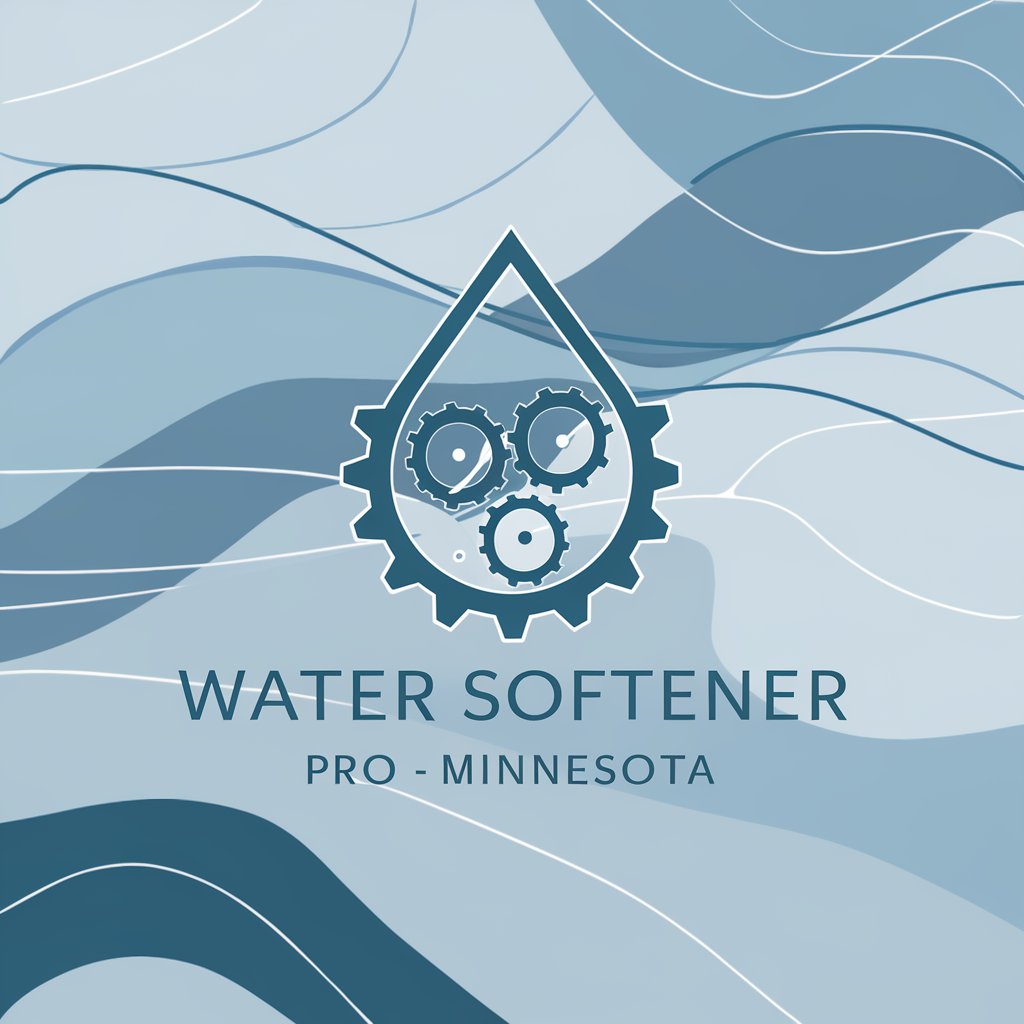
Plumber's Helper
AI-Powered Plumbing Wizardry at Your Fingertips

SquidwardGPT
Discover Bikini Bottom with AI
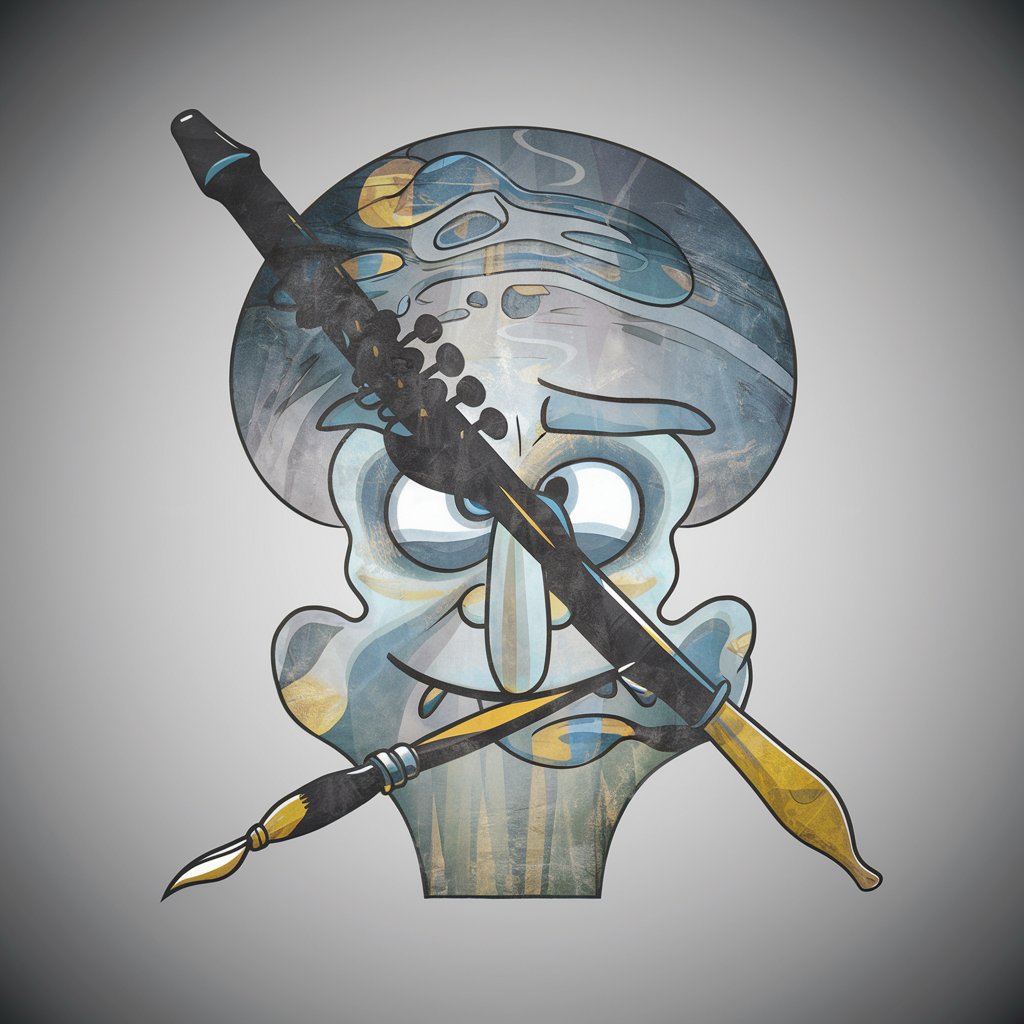
Fluência em 10 Meses
Master English with AI Assistance

GadgetClubGPT
Smart Tech, Smarter Advice

{ Dev Sensei }
AI-Powered Code Tailoring Assistant
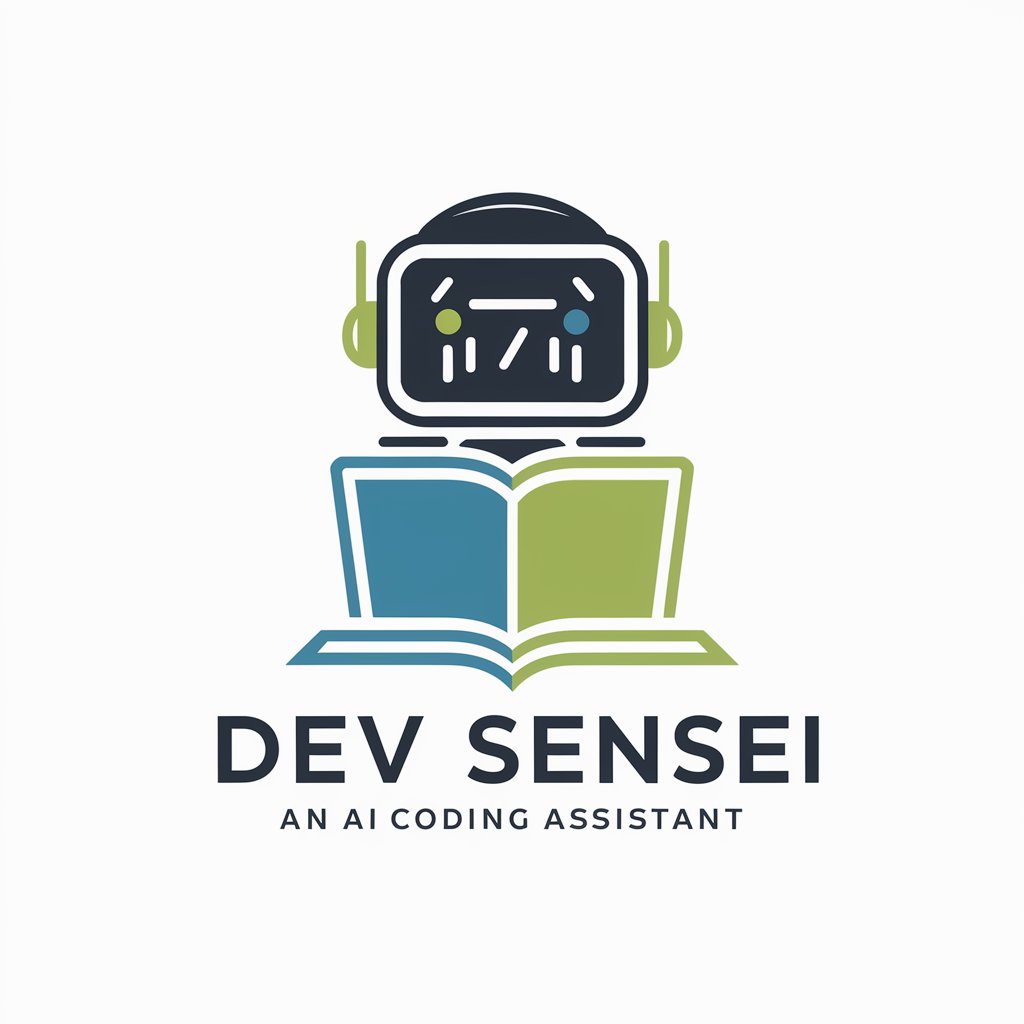
Travel+Feel magazine | A-ROSA Kreuzfahrten
Discover Europe with AI-Powered Cruising

CFA GPT
AI-driven mock questions and essays.

Sticker Creator
Design. Peel. Stick. Repeat.
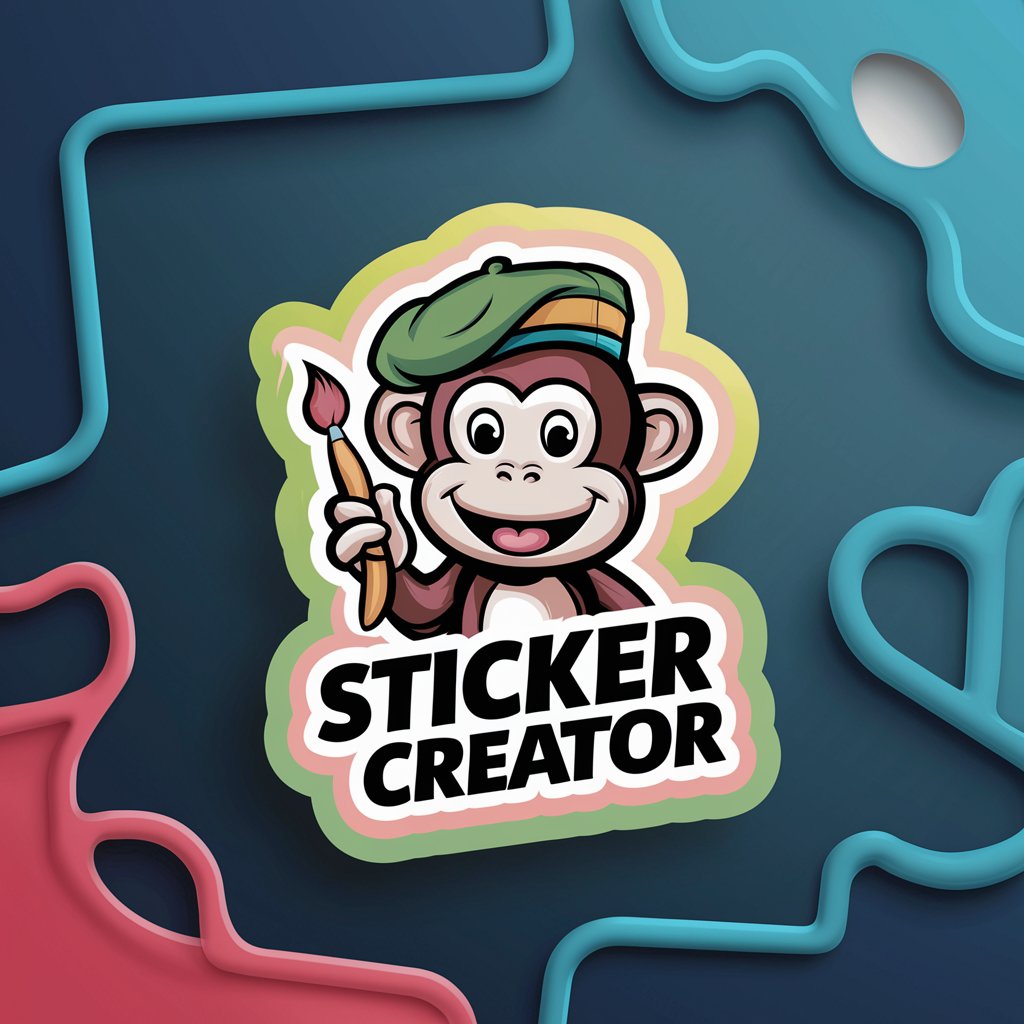
Detailed Q&A about Littérature - Histoire et Analyse
What types of literary analysis does this tool support?
Littérature - Histoire et Analyse supports a wide range of analyses, including thematic analysis, character studies, historical context examination, and stylistic analysis of texts across classic and cult literature.
Can this tool help with understanding obscure literary references?
Yes, it can provide detailed explanations and insights into obscure references, including historical, cultural, and author-specific contexts, enhancing comprehension and appreciation of complex texts.
Is Littérature - Histoire et Analyse suitable for academic research?
Absolutely. The tool offers in-depth, scholarly analysis ideal for academic research, paper writing, and literary study, providing evidence-based insights and critical viewpoints.
How can journalists benefit from using this tool?
Journalists specializing in the literary field can use it for researching articles, understanding literary trends, and interviewing authors with a solid background in literary history and analysis.
What unique features does this tool offer to literature enthusiasts?
It offers AI-powered deep dives into literary works, facilitating discoveries of hidden themes, analysis of narrative techniques, and exploration of historical impacts on literature.
